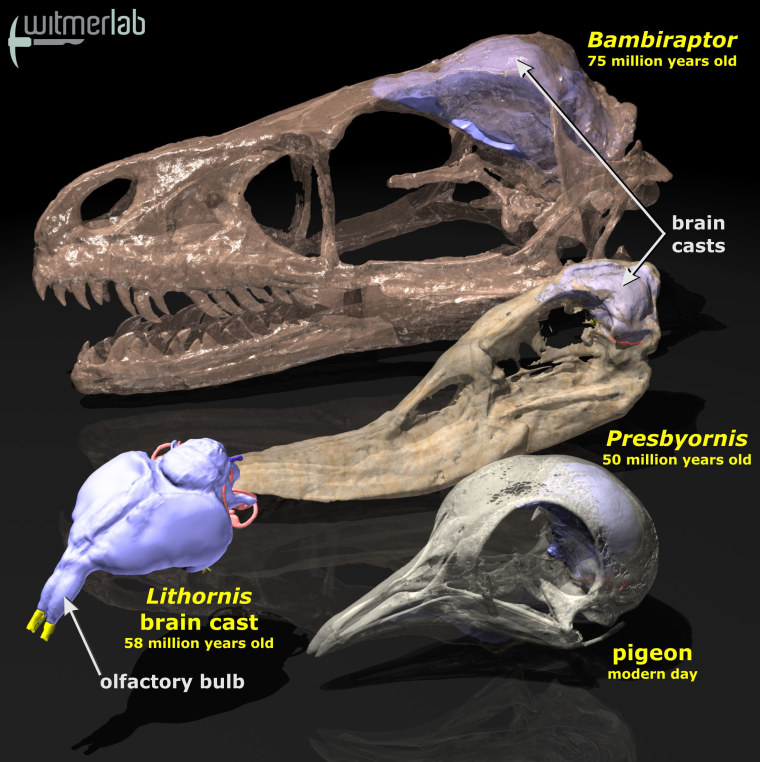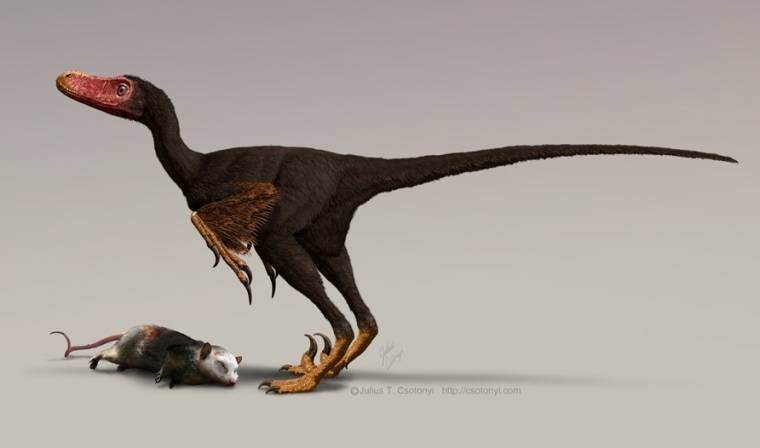The ancestors of modern birds might have survived the mass extinction that wiped out their dinosaur forebears by having a better sense of smell, researchers suggest.
As birds evolved from small, feathered dinosaurs, scientists had thought their sense of olfaction or smell got worse while their vision, balance and coordination improved for flight.

"Scientists thought that parts of the brain were being dedicated to these latter senses, while the region of the brain associated with olfaction deteriorated through evolution," said Darla Zelenitsky, a paleontologist at the University of Calgary.
However, by analyzing skulls, one can deduce the size of the brain region devoted to smell. It turns out early birds such as Archaeopteryx probably had as good a sense of smell as dinosaur relatives known as theropods that were of similar size.
To see how the sense of smell might have changed as birds evolved, researchers analyzed 130 species of living birds, seven species of fossil birds and 20 species of non-avian theropod dinosaurs, which include carnivores such as velociraptors and giants such as Tyrannosaurus rex. The team concentrated on the dimensions of the animals' olfactory bulbs, the brain regions underlying smell.
The researchers found the sense of smell improved overall during the evolution of small theropods to modern birds, apparently only decreasing much later on in some lineages of birds less dependent on scent. The earliest birds such as Archaeopteryx had a sense of smell comparable to pigeons, while some "raptor" dinosaurs were as good as turkey vultures, birds well known for their keen noses.
This improved sense of smell, as well as larger brains overall, might have provided an edge that could explain why modern birds are still around and their dinosaur and archaic bird relatives are not.
"Since some modern-day birds are known to use their sense of smell for foraging and for navigation, perhaps the combination of flight and larger brains — including larger olfactory bulbs — gave modern birds a competitive edge over archaic birds and other dinosaurs to survive this mass extinction," Zelenitsky told LiveScience.
The scientists detailed their findings online Wednesday in the Proceedings of the Royal Society B.
